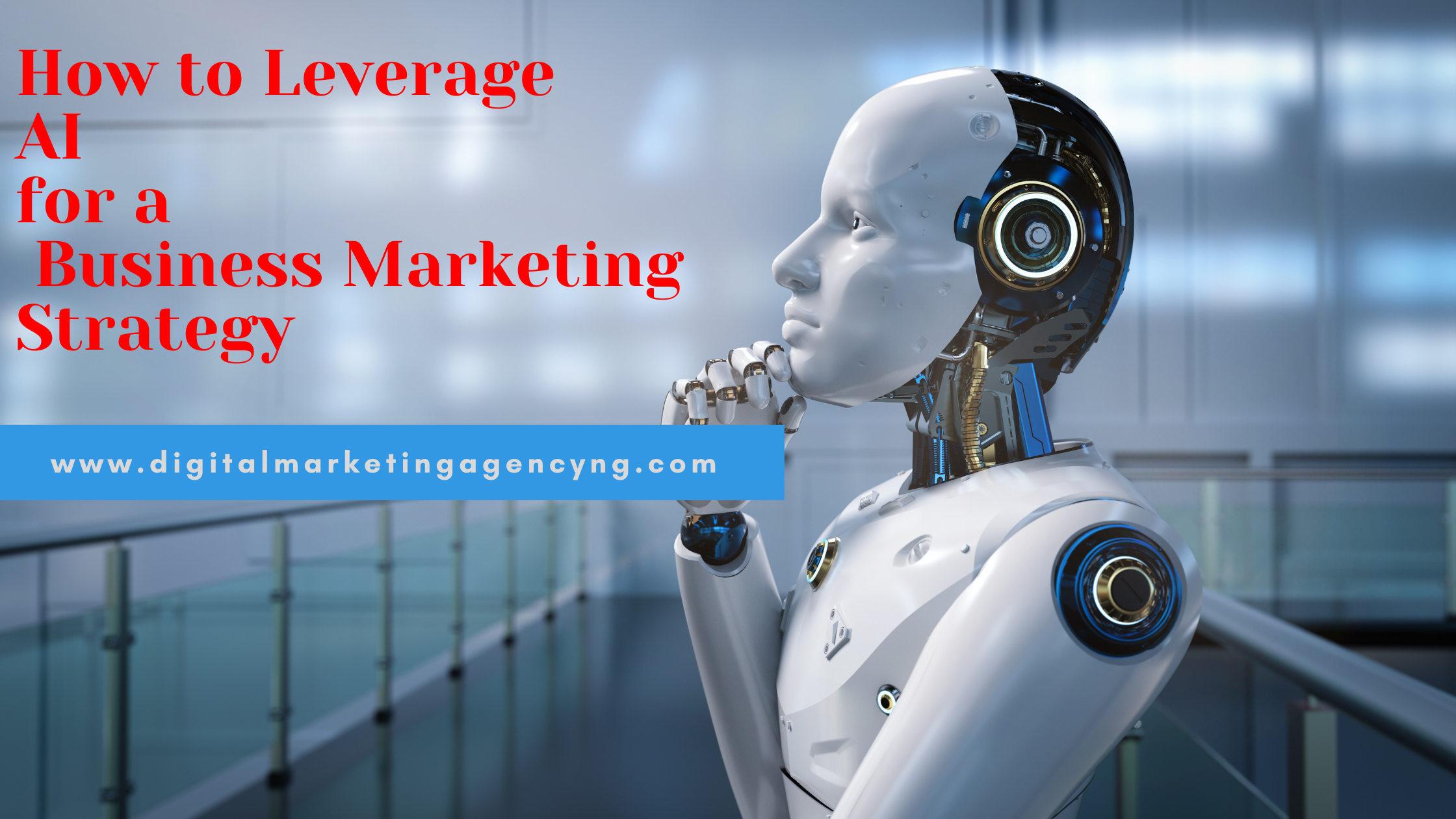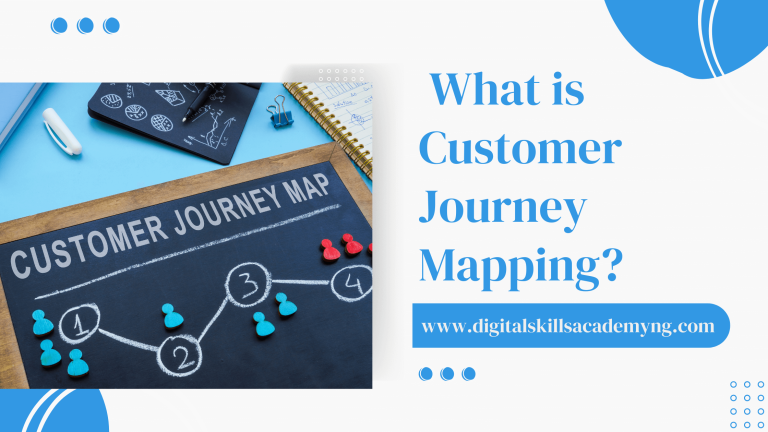How to Leverage AI for a Business Marketing Strategy and Its Importance in Digital Marketing
Artificial Intelligence (AI) has emerged as a transformative force in the ever-evolving digital marketing landscape, revolutionizing how businesses connect with their audiences, optimize campaigns, and drive growth. The integration of AI into marketing strategies is not just a trend but a necessity for businesses aiming to stay competitive in the digital age.
We will learn the myriad ways AI can be leveraged for a business marketing strategy and underscore its critical importance in digital marketing.
What is AI in Business Marketing
Table of Contents
AI encompasses a variety of technologies, including machine learning, natural language processing, and data analytics, which enable machines to mimic human intelligence. In the context of marketing, AI can analyze vast amounts of data to uncover insights, automate tasks, and personalize customer interactions. Here are some key areas where AI is making a significant impact:
Data Analysis and Insights
AI algorithms can process and analyze massive datasets much faster and more accurately than humans, providing valuable insights into customer behavior, market trends, and campaign performance.
Personalization
AI can create highly personalized marketing messages and experiences based on individual customer data, leading to higher engagement and conversion rates.
Automation
AI-powered tools can automate repetitive tasks such as email marketing, social media posting, and ad placement, freeing up time for marketers to focus on strategy and creativity.
Predictive Analytics
AI can predict future trends and customer behaviors, enabling marketers to make proactive decisions and stay ahead of the competition.
How to Leverage AI for a Business Marketing Strategy
Enhancing Customer Understanding
AI-driven tools like customer data platforms (CDPs) and customer relationship management (CRM) systems consolidate data from various sources, providing a comprehensive view of each customer. This 360-degree view allows businesses to understand customer preferences, purchase history, and behavior patterns, enabling more targeted and effective marketing strategies.
Examples:
Behavioral Segmentation: AI can segment customers based on their behavior, such as purchase frequency or website interactions, allowing for tailored marketing campaigns.
Sentiment Analysis: By analyzing social media posts, reviews, and feedback, AI can gauge customer sentiment and adjust marketing messages accordingly.
Optimizing Content Creation and Curation
Creating engaging content that resonates with the target audience is crucial for any marketing strategy. AI tools can assist in generating and curating content, ensuring it aligns with customer interests and preferences.
Examples:
Content Generation: AI-powered platforms like GPT-3 can generate blog posts, social media updates, and even video scripts, saving time and resources.
Content Curation: AI can recommend relevant content to share with your audience based on their previous interactions and interests, keeping them engaged and informed.
Personalizing Customer Experiences
Personalization is key to building strong customer relationships and driving conversions. AI enables businesses to deliver highly personalized experiences across various touchpoints.
Examples:
Dynamic Content: AI can customize website content, emails, and ads in real time based on individual user data, enhancing relevance and engagement.
Product Recommendations: E-commerce platforms use AI to analyze customer behavior and recommend products that are likely to interest them, increasing sales and customer satisfaction.
Enhancing Advertising Efficiency
AI can optimize advertising campaigns by analyzing performance data and making real-time adjustments to maximize ROI.
Examples:
Programmatic Advertising: AI automates the buying and placement of ads, targeting the right audience at the right time with precision.
Ad Performance Analysis: AI tools can monitor ad performance across various channels, identifying what works and what doesn’t, and optimizing budgets accordingly.
Automating Customer Service
AI-powered chatbots and virtual assistants can handle routine customer inquiries, providing instant support and freeing up human agents for more complex issues.
Examples:
24/7 Support: Chatbots can provide round-the-clock assistance, improving customer satisfaction and retention.
Lead Qualification: AI-driven chatbots can engage with website visitors, qualify leads based on their responses, and direct them to the appropriate sales channels.
The Importance of AI in Digital Marketing
Improved Efficiency and Productivity
AI automates time-consuming tasks, allowing marketing teams to focus on strategic planning and creative endeavors. This increased efficiency leads to higher productivity and more effective marketing campaigns.
Examples:
Automated Reporting: AI can generate detailed reports on campaign performance, saving time and providing actionable insights.
Workflow Automation: Tools like Zapier integrate various marketing applications, automating workflows and reducing manual effort.
Enhanced Customer Insights
AI’s ability to process and analyze large volumes of data provides deeper insights into customer behavior and preferences. These insights enable marketers to make data-driven decisions, improving the effectiveness of their strategies.
Examples:
Predictive Analytics: AI can forecast future trends and customer behaviors, helping businesses stay ahead of the curve.
Customer Journey Mapping: AI tools can map out the customer journey, identifying touchpoints and opportunities for engagement.
Greater Personalization
Personalized marketing messages resonate more with customers, leading to higher engagement and conversion rates. AI’s ability to analyze individual customer data enables businesses to deliver highly tailored experiences.
Examples:
Email Personalization: AI can customize email content based on recipient data, increasing open and click-through rates.
Website Personalization: AI can adapt website content in real-time to match the interests and behaviors of individual visitors.
Competitive Advantage
Businesses that leverage AI in their marketing strategies are better positioned to outperform competitors. AI provides a competitive edge by enabling faster decision-making, more accurate targeting, and more efficient operations.
Examples:
Market Analysis: AI can analyze market trends and competitor activities, providing insights that inform strategic decisions.
Campaign Optimization: AI continuously monitors and optimizes campaigns, ensuring maximum ROI and staying ahead of competitors.
Cost Savings
AI’s ability to automate tasks and optimize campaigns leads to significant cost savings. Businesses can achieve more with less, maximizing their marketing budgets.
Examples:
Ad Spend Optimization: AI ensures that ad budgets are spent efficiently, targeting the right audience and minimizing wastage.
Resource Allocation: AI identifies the most effective channels and strategies, enabling optimal allocation of resources.
What We Say
The integration of AI into business marketing strategies is not just beneficial but essential in today’s digital landscape. AI’s ability to analyze data, personalize experiences, automate tasks, and predict trends offers unparalleled advantages that can drive growth and enhance competitiveness. As AI technology continues to evolve, its impact on digital marketing will only increase, making it crucial for businesses to embrace AI and harness its full potential.
By leveraging AI, businesses can gain deeper insights into their customers, create more engaging content, deliver personalized experiences, optimize advertising efforts, and improve overall efficiency. The importance of AI in digital marketing cannot be overstated, as it empowers businesses to connect with their audiences in more meaningful ways and achieve their marketing objectives with greater precision and effectiveness.
Register to learn digital marketing implementation for your business.




